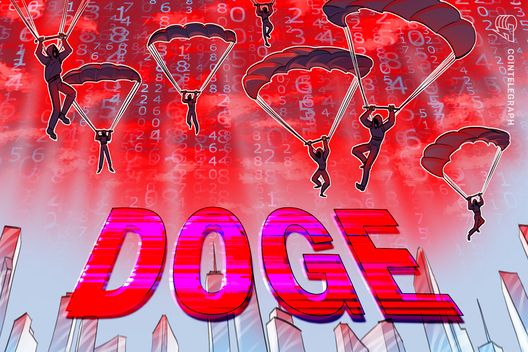

The Qubic community, known for its AI-focused blockchain project, has recently voted to target Dogecoin after successfully launching a 51% attack on the Monero network. This move has sparked debate and concern within the cryptocurrency community, raising questions about the security and decentralization of Proof-of-Work (PoW) blockchains.
Qubic is a layer-1 blockchain network that combines cryptography and artificial intelligence, utilizing a "Useful Proof-of-Work" mechanism. Unlike traditional PoW systems, Qubic directs computational power towards AI training. The Qubic network operates with 676 computers supported by AI miners, and decisions are made through a quorum-based computing model, requiring approval from 451 members to enhance security and reliability. Qubic is also designed for fast, feeless transactions with instant finality.
A 51% attack occurs when a single entity gains control of more than 50% of a blockchain's hashing power. This control enables the attacker to manipulate the blockchain by reorganizing blocks, censoring transactions, and potentially double-spending coins. In the case of Monero, Qubic claimed to have gained majority control of the network's hashing power, leading to the reorganization of six blocks. This claim was met with skepticism from the Monero community, who argued that Qubic never exceeded 35% of the hashrate and instead employed a selfish mining strategy.
Despite the controversy, the alleged attack on Monero has had real-world consequences. Kraken, a major cryptocurrency exchange, temporarily paused Monero deposits as a security precaution. While withdrawals and trading remained operational, the suspension of deposits highlighted the potential risks associated with 51% attacks.
Following the Monero incident, the Qubic community held a vote to determine its next target. Dogecoin, a popular meme-based cryptocurrency, emerged as the frontrunner, surpassing Zcash and Kaspa by a wide margin. This decision has raised concerns, given Dogecoin's significant market capitalization and the potential impact of a successful attack.
A successful 51% attack on Dogecoin would require a substantial amount of computational power. To achieve this, Qubic may need to increase its own token price to incentivize more miners to join the network and contribute to its hashing power. The implications of such an attack could be far-reaching, potentially undermining trust in the network and causing significant financial losses.
The events surrounding Qubic's actions against Monero and its subsequent targeting of Dogecoin highlight the ongoing challenges in maintaining the security and decentralization of PoW blockchains. While Monero is designed to resist centralization, the Qubic incident demonstrates that protocol incentives alone may not guarantee decentralization. The crypto community remains vigilant, with many calling for increased awareness and proactive measures to mitigate the risk of future attacks.